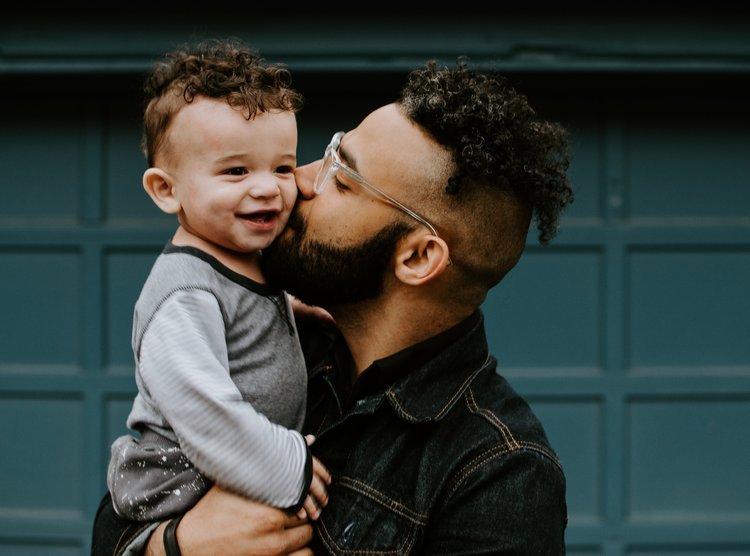What if Couples Therapy Ultimately Leads to Divorce?
As couples’ therapists, we sometimes work with parents who worry about how a separation would affect their children. Fearful that a divorce would somehow ruin their children’s lives, they agonize over whether they should stay together for the sake of their kids. Then, this affects the way that they engage with couples therapy through that discernment process.
There’s no easy answer since every relationship and living situation is so different. But the question is definitely worth asking. If you’re feeling guilty about considering divorce because of your kids, we encourage you to think carefully about how a change in your relationship status could impact them.
The Potential Effects of a Divorce/Separation on your Children
As you deliberate whether it would be better to stay together for your children, we encourage you to consider how a split could impact the following areas of your kids’ lives:
Family Resources
Sometimes, couples therapy ultimately ends in divorce. If you decide to separate and live apart, your family’s total income will be split between two households. Financially, this could present a real problem, especially if you rely on your spouse’s health insurance. Separating your family might also make it much more difficult to divvy up parenting responsibilities, potentially leaving one parent to bear the bulk of the burden.
Practical concerns like these might rule out divorce/separation, but not necessarily. If you and your partner can manage to cohabitate peacefully despite the end of your romantic relationship, you might be able to continue living in the same home. For example, you could move into a guest bedroom or take over the living room. We’ve even heard of people buying duplexes together to remain close but separate.
Mental Health
If you and your partner argue a lot, staying together could perpetuate that toxic environment for your children. Kids are smart; they can sense parental tension and overhear arguments even when you try to hide them. Despite your best efforts, your relationship anxiety will likely transfer to your children.
One way to reduce the mental health impacts of your relationship problems would be to separate from your partner and create a new, more peaceful place for your child to live. Another strategy would be to work on your relationship, preferably with the help of couples’ therapy. Even if you separate down the road, nurturing your relationship now could reduce household tension and anxiety in the meantime.
Parental Involvement
Research suggests children who have supportive relationships with both parents fare better than those raised exclusively by one. That’s why we would encourage you to learn to communicate more civilly with your partner—even if you’re planning to separate. If you can manage that, your partner may be more likely to cooperate in terms of financial support, emotional support, and everyday problem-solving with your child.
Consistency/Predictability
It can be destabilizing for children to have different rules and routines in shared custody situations. Deciding to live separately could confuse your children and undermine your authority unless you are able to coordinate with your partner on child-rearing strategies. If you badmouth each other or attempt to undermine each other’s relationship with them, it will only add to your kids’ distress.
You can create greater consistency and reliability by putting aside your differences and collaborating on parenting-related matters. You won’t agree on everything, but ideally, you can create a set of rules and expectations that aren’t parent-dependent. Your children will feel safer and more secure when they know what to expect and what is expected of them.
Behavioral Modeling
We don’t recommend a “do as I say, not as I do” parenting style. Children learn just as much from actions as words, so it’s important to model healthy behaviors. Do you want your children to learn from you that they should yell at people and insult them when they disagree? Or would you prefer they learn kindness, empathy, and healthy communication?
Whichever direction you decide to take your marriage/relationship, it’s essential to do it properly. Your children will understand if you take the time to calmly express yourself and explain your situation in words that make sense to them.
Using healthy communication strategies throughout the household will prevent the sadly common belief among kids that they are somehow at fault for their parents’ relationship problems. The skills your kids learn from watching you will also benefit them in future relationships.
So. . . should you stay together for the kids?
It’s not a bad question, but it’s not as binary as it sounds. There are so many different ways of living and navigating a troubled relationship—some are healthy for children, some aren’t.
Instead of asking whether you should stay together for the kids, we invite you to ask yourself a different question: “Can I be willing to develop a healthy communication capacity with my partner for my children’s sake?” If so, your kids will benefit whether or not your partnership survives.
Divorce doesn’t have to ruin children’s lives, but it takes conscious effort to mitigate its impact. It may also require professional support to prevent your relationship problems from hurting your kids. As licensed therapists, we can show you how to stay together for the kids or consciously uncouple without scarring them for life. Take the first step toward a healthier family dynamic by joining one of our experienced couples’ therapists for a free consult. They will answer any questions you may have about our online couples’ counseling service, available to couples in New York City and throughout the state.



